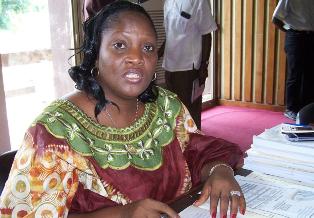In quest of quality education
President George Manneh Weah has requested the Federal Government of Nigeria to send 6,000 teachers to Liberia to help revise the country’s messy education sector.
Ex-president Ellen Johnson Sirleaf described the education sector in Liberia as messy when she noted that graduates were leaving college without 9th grade education.
According to a dispatch from Abuja, President Weah made the appeal on Monday, 6 March while meeting with his counterpart, Muhammadu Buhari at State House in Abuja.
Briefing journalists after the meeting with President Buhari, the Liberian president says urgent problems facing his government include youth unemployment, education, agriculture, mining and health, among others.
While we hail the President for his burning desire to improve the quality of education in Liberia, we advise that a sustainable solution should come from within, as outside assistance would only buttress whatever structure is on the ground. We also acknowledge President Weah’s commitment that his government will continue paying the West African Senior School Certificate Examinations (WASSCE) fees for 12th graders across the country.
Nigeria has a Technical Assistance Corps (TAC) Agreement with Liberia under which several Nigerian doctors and teachers were deployed here during the Sirleaf Administration to boost capacity development.
However, we strongly believe strengthening our own teachers training institutions such as KRTTI in Margibi County, ZRTTI in Lofa County and Wehbo Rural Teacher Training Institute in Grand Gedeh County, respectively as well as the William V.S. Tubman Teacher’s College at the University of Liberia will be sustainable in the long-run.
We challenge the new Minister of Education Ansu Soni, to put his feet down strongly in ensuring standards in our schools as a first step in weeding out hustlers masquerading as teachers, corrupting the minds of our children. When Ministry of Education authorities are running schools and chairing private school boards this is not only counterproductive, pure conflict of interest because they would compromise the rules.
[bsa_pro_ad_space id=1]
We also need to place premium on education by paying qualified teachers well to maintain them in the classroom, and encouraging our students to take interest in the sciences or better still, introduce STEM education: Science, Technology, Engineering and Mathematics as emphasis subjects in our schools.
If the government were to come down firmly on school authorities to uphold set standards both in public and private schools by preventing teachers from trading sex for grade, accepting bribe to promote students and designing school curriculum that conforms with current global realities, we would have tackled the problems head-on with support from foreign partners. Not the other way around.




















